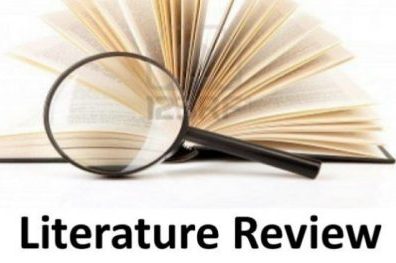In addition to our professional services, we've developed resources to help you take the next step with your writing! Read them by category, or scroll down to see all our resources below.
Browse all our resources:
Basics for Writing Literature Reviews
What is a Literature Review? The Literature Review overviews, analyzes, and sometimes critiques relevant previous research. It lays the groundwork for the original research presented in a thesis/dissertation by demonstrating that the research fills a “gap” in the literature and/or contributes something new or has implications for specific areas of [...]
Tips for Dissertation Introductions
The introduction informs your audience about the importance of your topic, the research question(s) you plan to investigate, and your hypothesis or core claim (thesis statement). It also outlines the structure of the rest of the dissertation, through a chapter overview. Write Literature Reviews First (Before the Introduction) You [...]
Sample Dissertation Front Pages
Dissertation writers may find it difficult and frustrating to correct the format of a dissertation according to guidelines, especially if the document is already written. WEX is here to help! Below you'll find a downloadable template file for the AU Front Pages, allowing you to just fill in the fields [...]
Get Cozy With A Book
While deep in the dissertation process, it can be very helpful to have “friendly” books nearby that help ignite awareness of "writer within." While some dissertation writers feel they need to quarantine themselves from any other lived experience, the reality is that reading for pleasure can profoundly mitigate the oppressive [...]
Enhanced Readability
State your purpose explicitly. Make your issue very clear. Make the topic of each section and paragraph visually prominent. Use headings and subheadings appropriately and correctly Place topic sentences in the beginning of paragraphs Maintain the topic in the reader’s mind by referring to it frequently Readers (especially with [...]
Common Errors Seen in Dissertations
WEX Editors on Common Errors Seen in Dissertations We’ve asked the WEX editors about the common APA errors they’re seeing in dissertations and have created this list in the hopes writers might have an advantage in self-editing their dissertations.[1] Here we go: Table of Contents: Inconsistent wording from the heading [...]
Does Proofreading Really Matter?
We’ve spent much time talking about editing, and now it’s proofreading time to take the front stage. We’ve all had the experience of reading a professional text and noticing a typo. The immediate response is typically one any writer would prefer to avoid as there’s nothing like losing a reader’s [...]
Proofreading Checklist
Proofreading Checklist So many of us focus our writing time on the composing process and forget that the final product deserves a finishing touch. Don't neglect this final polish that all writing requires if it's going to be read by another person. If you're independent and feel capable, go [...]
Self-Editing for Content
Have you been told that your writing lacks direction or unity? If so, the following list of questions might help you edit for content. Focus on one or two areas below and revise for style and meaning. Subject, Purpose, Audience What's the most important thing I want to say about [...]
Writing the Dissertation Abstract
The dissertation abstract is a decidedly strategic element of the dissertation. Not only is it the most widely read section of your dissertation, it is where that reader decides whether to read further. The abstract reveals to this researcher the relevance of the research as well as your skills in [...]
Program Handbooks and APA
Director’s Desk: Where’s the Consistency? When Academic Program Handbooks and the APA Manual Disagree You’ve made it this far with APA and for the most part the manual has been consistent in presenting definitive style and format rules. Once you get to the dissertation, however, the APA manual seems [...]
Cracking the Cover Letter
Cover letters are a part of job, internship, and practicum applications that always tripped me up. As soon as I saw the words “cover letter”, I felt stuck because I didn’t know where to begin. Unfortunately, as a graduate student, cover letters are an unavoidable part of my life. Many [...]
Rules with Academic Degrees
WEX has had a few questions in the past couple of months regarding ways of acknowledging academic degrees in our writing, and we hope this posting would help clarify the rules. Capitalization: In the academy we might feel compelled to capitalize all our degrees as well as subject [...]
Dash Away! Dashes Explained
Have you ever wondered what all the commotion was between hyphens and dashes? If you're writing for publication (esp in APA), you might have been given feedback from a reader or an editor about the Em Dash vs the En Dash. It might seem fussy detail, but there is a [...]
The Curse of Knowledge
Once I know something, I find it hard to remember what it was like not to know it. As a result, I have a hard time communicating what I’ve learned. I use jargon – specialized words that experts in the field know. I don’t include examples and evidence that seem [...]
Proofreading Made Easier
Proofreading your own writing can be a difficult enterprise. You’ve read the material so many times that your eye doesn’t catch what can be glaring to an outside reader. Errors or typos are too quickly lost to your own field of vision. After all the hard work of conceptualizing, researching, [...]
Homophones Explained
Homophones are words that sound the same but are spelled differently. For many writers, homophones are the number one reason for misspelled words. It’s not necessarily that we don’t know how to spell a certain word, it’s that we fell into the auditory trap of using another word that sounds [...]
Beyond Rules
I recently went through a box of ephemera from high school, including old essays. Each one I read started with a dictionary definition. According to Merriam-Webster, rigid (adj.) means inflexibly set in opinion, or strictly observed. I think an English teacher told me that one possible way to start an [...]
Learning to Listen
I once spoke with a sculptor about how she works. “I get this idea in my head,” she told me. “I’ll start sketching it in my notebooks, trying to imagine what it will look like and what materials I’ll need, even how and where I want it to be seen. [...]
The Tension with Tenses
I’ve found that when working with ESL students, the most challenging thing for me has been explaining verb tenses. Now, as a bilingual person, I completely understand how confusing English is. That doesn’t mean I have a clue of how to explain the use of the correct tense though even [...]
Richard Feynman and Writer’s Block
Richard Feynman was a Nobel Prize winning physicist who famously challenged colleagues to explain difficult concepts in simple language rather than “hide behind” the esoterica and arcane language of their fields. A popular faculty member at CalTech, Feynman was dedicated to ensuring that his students learned the material [...]
Show, Don’t Tell
If writing is a public act, then, your purpose as a writer is to ignite reader’s interest and understanding of what you are writing about. The “Show, Don’t Tell” strategy emphasizes the reader’s experience of the material through the detail presented through action, concrete language, thoughts, sensory imagery, and feelings [...]
Revising for Content and Organization
Descriptive Outlines & Revising for Content and Organization Many writers rely on the organizational value of outlines to organize their thoughts in the initial stages of writing. Outlines can also provide a useful framework to help ensure organization during and after writing. This exercise provides a way to check for [...]
Revising for Clarity and Precision
Perhaps you’ve been told that your writing is wordy or that your heavy phrasing confuses your reader. Most writers face this problem of “overwriting.” However, clear sentences are integral to clarity and facilitating your reader’s understanding. To ensure greater readability, try using the Paramedic Method described here. The “Paramedic [...]
























